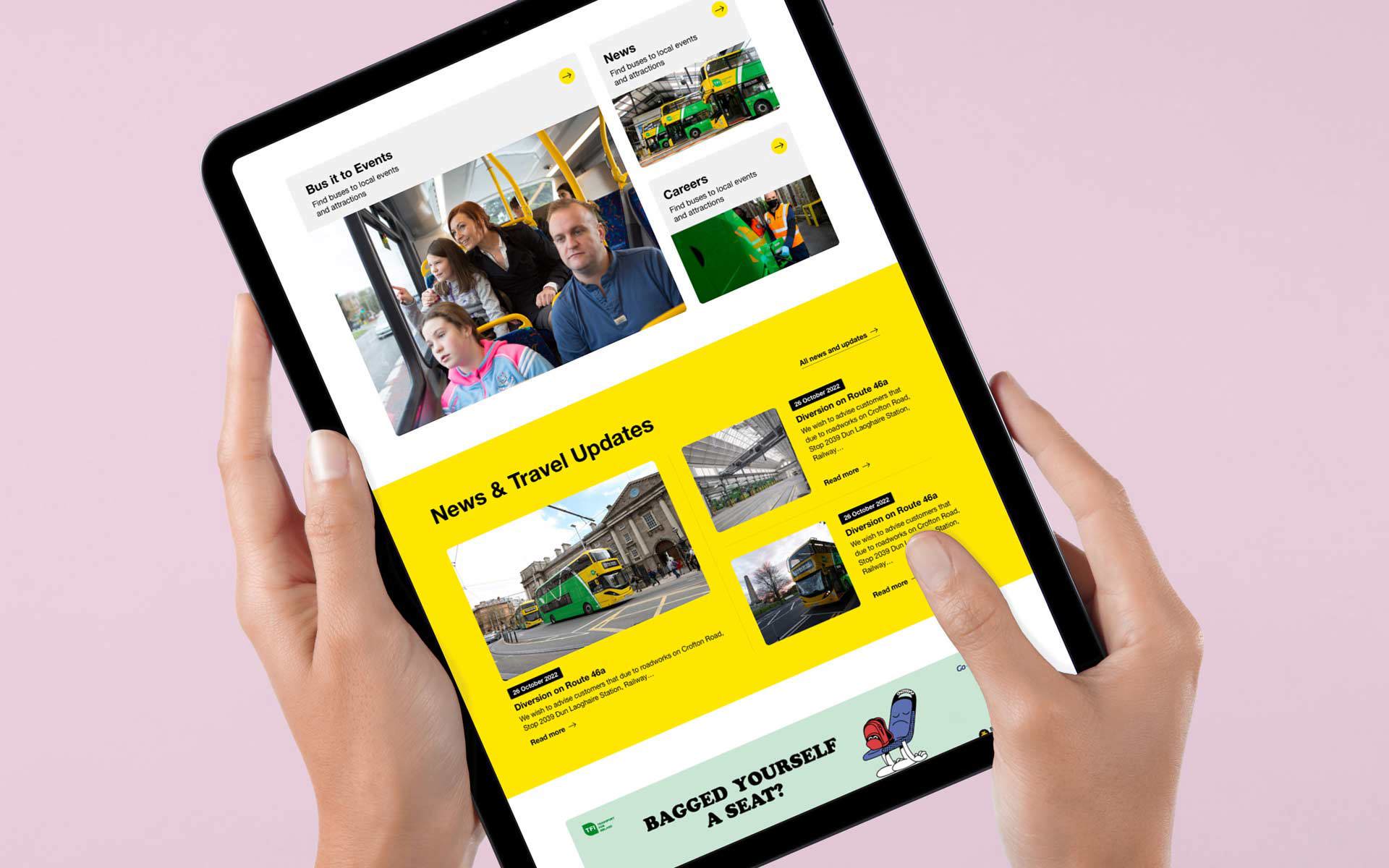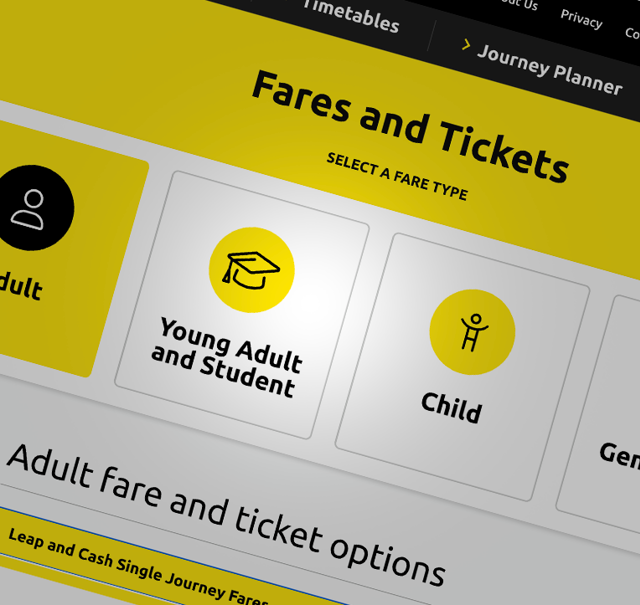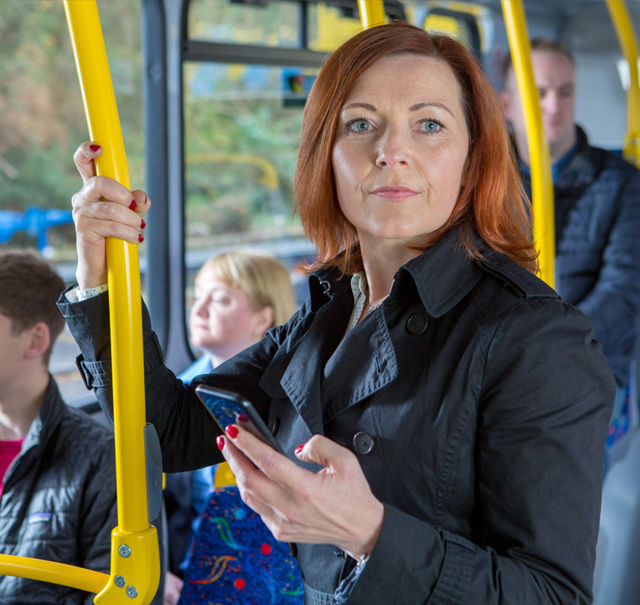“Their exceptional work on UX and Accessibility highlighted the importance of a seamless user experience on the Dublin Bus website, as every journey matters for all customers. Some customers have disabilities, often not visible, requiring our extra care. Therefore, it’s essential for Dublin Bus to have a digital product that fully complies with Web Content Accessibility Guidelines 2.1 Level AA. Zesty helped us to achieve this and gave us the tools with a powerful CMS to maintain this standard. We couldn’t ask for more.” – Martin Cosgrave, Business Systems Manager
Case Study
Dublin Bus
Rebuilding the digital product for Dublin’s largest public transport provider to ensure inclusivity for all users, which resulted in winning an Excellence in Digital Accessibility award.
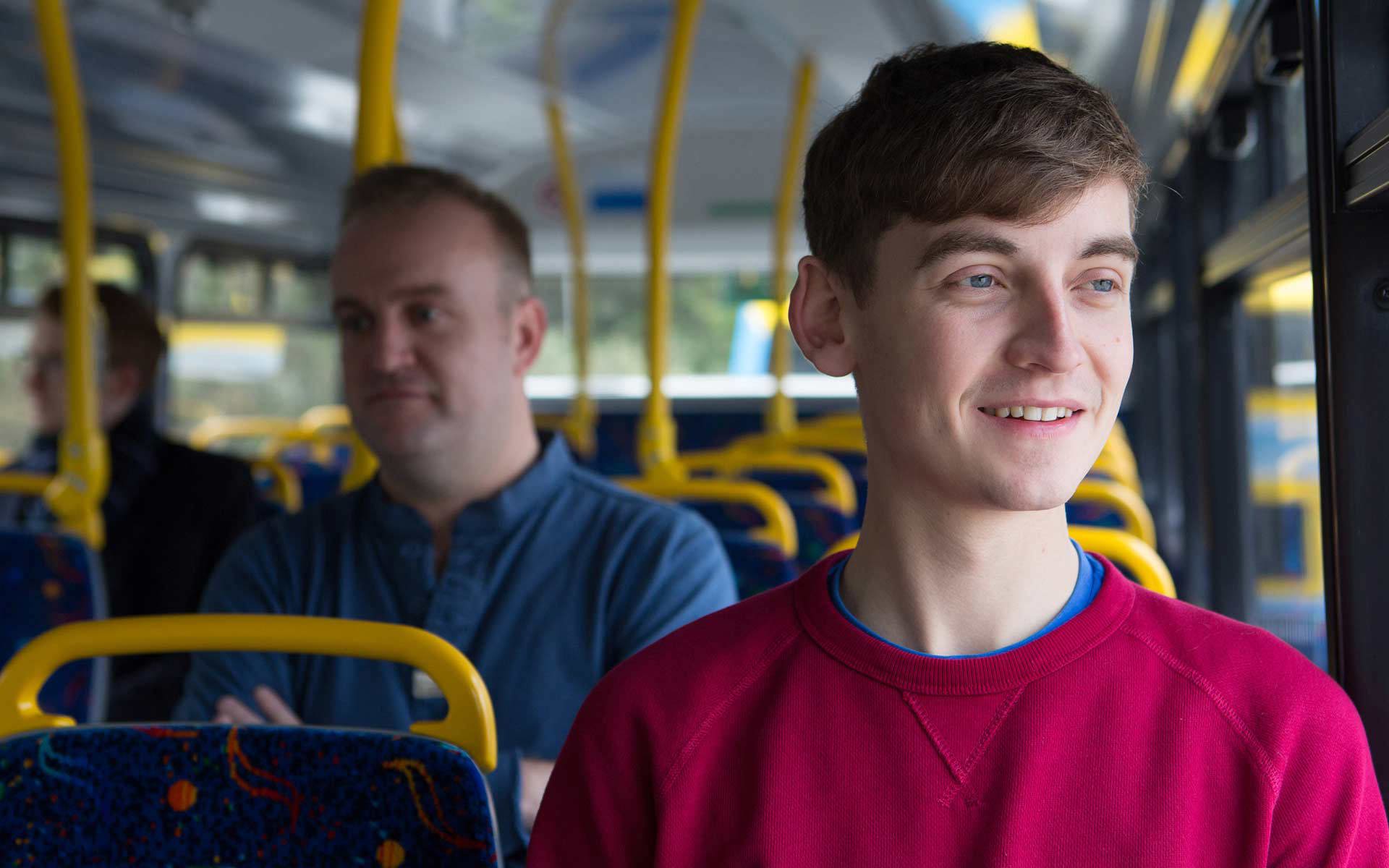
What we did:
- Research
- Stakeholder engagement
- User Experience
- UI Design
- Front-End and Back-End Development
- Kentico integration
- Ongoing updates to meet the Web Accessibility directive
The Client
Dublin Bus is the largest public service transport provider in Dublin and has a long history of supporting economic and social development across the Greater Dublin Area (GDA).
The Brief
Dublin Bus’s website dated back to 2008 and with technological advancements and the growing needs of the business their site was no longer fit for purpose.
Dublin Bus needed a modern, dynamic website that would create a strong visual impact while adhering to their corporate brand guidelines. The site also needed to be highly functional, comply with Web Content Accessibility Guidelines, and be powered by a scalable and flexible web content management system (CMS) within a secure hosting environment.
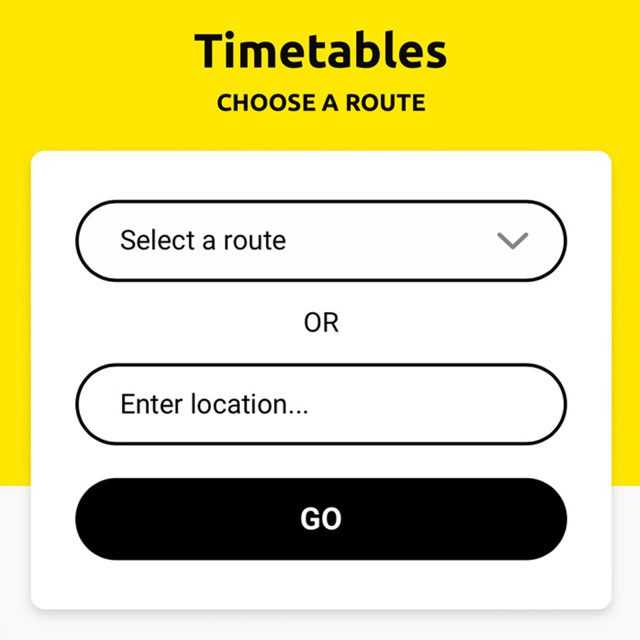
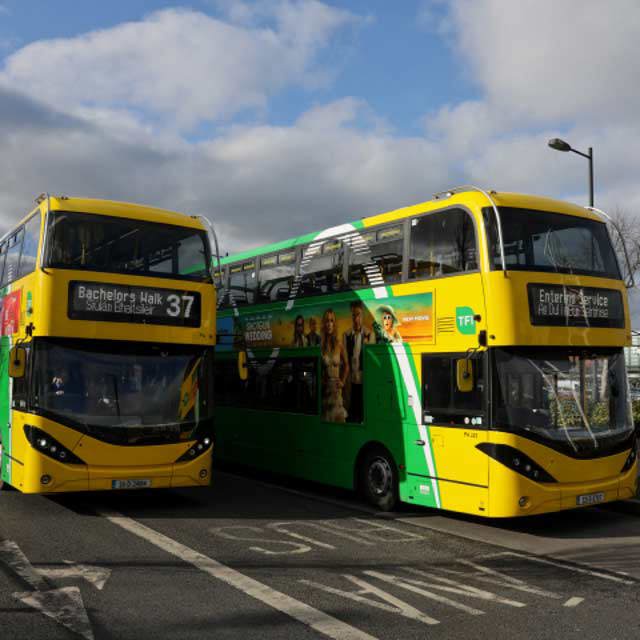
What We Did
We developed the new Dublin Bus website using the Kentico Xperience CMS, Version 12, which offers content managers, designers, and developers the tools to easily change, update, and deploy web pages through a range of templates. This system facilitates the integration and reuse of web templates, ensuring site delivery is efficient.
Our team collaborated closely with the internal Dublin Bus design department to create templates that allowed them to express their creativity in areas such as landing pages and hero sections. To ensure brand alignment, we methodically matched the corner radius on all panels to those found in the Dublin Bus logo, among other subtle design details.
Accessibility
Accessibility was a high priority for the project. We focus on creating front-end builds as standalone packages and this approach enables isolated testing using industry leading accessibility tools and thorough internal manual testing.
After integrating the front-end with the CMS, we then conducted a second round of comprehensive testing on the entire website. This dual-phase method ensures our technical compliance remains robust throughout development.
Alongside our internal accessibility practices, we worked with Vially (formerly IA Labs), a digital accessibility company – to carry out further manual accessibility testing. Throughout the project, we provided Vially with up-to-date access to the front-end and development site, enabling continuous manual testing and feedback implementation. The new website was built and tested to meet WCAG 2.1 AA Accessibility Standards across all devices, ensuring an inclusive experience for all users.
The redesigned Dublin Bus website now serves as a comprehensive information gateway for prospective and current passengers, supports the Transport for Ireland-led BusConnects project, and caters to people with accessibility needs. The site is fully responsive, offering a seamless experience across all devices. It features advanced search capabilities, dual language support in Irish and English, and an intuitive, easy-to-navigate interface.
Results
Since its launch, the new website has achieved higher keyword rankings and improved its position in Google search results, contributing to sustained high levels of organic traffic.
The project won the Excellence in Digital Accessibility Award at the Digital Business Ireland Awards in February 2024.
